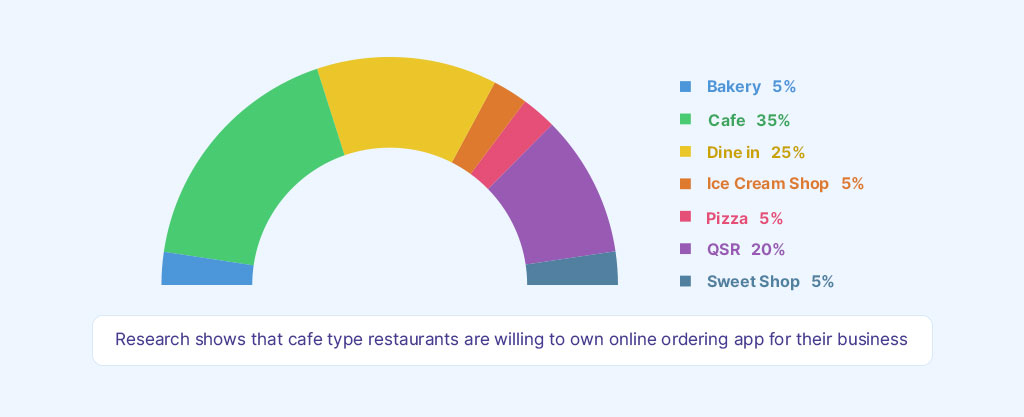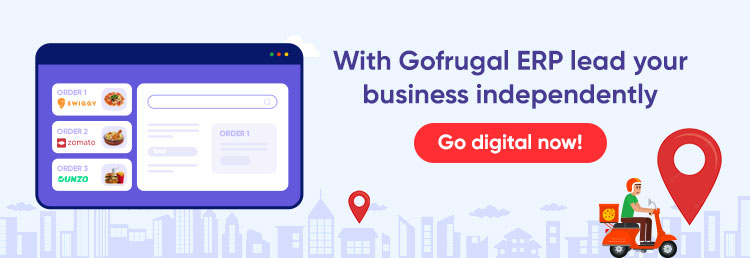
Food ordering has become an essential part of many social lives. People, especially the millennials, are obsessed with the online ordering process and all the major online food aggregators are taking up a huge chunk of this market share. However, challenges remain as there are multiple concerns regarding online food ordering.
Many challenges have been raised about online food aggregators. These challenges include the fact that online food ordering from restaurants is not transparent about their fees, and that they do not always deliver on their promises.
Online food delivery market in India
The online food delivery market has become the world’s most popular and fastest-growing market in recent years, and its demand has increased rapidly. The Indian food delivery market is growing at a rapid pace and is expected to grow by $716.53 million during 2022-2026, progressing at a compounded annual growth rate of 28.13% during the forecast period.
The Negative Externalities of Online Food Aggregators: Why restaurants are struggling
The restaurant industry has been revolutionized by the advent of online food aggregators. These platforms have made it easier than ever for consumers to find and order food from restaurants. However, they have also created many challenges for restaurants, which can be difficult to overcome.

Recent commission rates
In recent months, online food aggregators in India have come under fire for increasing their commission rates drastically. This has led to widespread criticism from restaurant owners, who say that the higher rates are impeding their business operations
However, online food aggregators claim higher rates are necessary to cover their expenses. Due to this increase in commission rates the restaurants are forced to raise their online prices which impacts the end customers ordering food from the restaurants.
Delivery issue
There has been a recent spate of delivery issues from online food aggregators in India. Many customers have complained about late or missing deliveries, and in some cases, food has been delivered cold or inedible. This has led to a lot of frustration and anger, especially from those who are reliant on these services for their daily meals. This delivery issue not only impacts the aggregators but also creates a negative impression on the restaurants.
Unstable Order prices
The online food aggregator market is in a state of flux, with prices fluctuating continually. This makes it difficult for consumers to know how much they should be paying for their food.
Customer transparency
Another issue restaurants are experiencing with online food aggregators is accessing customer data. This has created a void for them since they were unable to determine which customers were their most loyal and who had given them negative reviews for their food.
Due to this, restaurateurs are unsure about customer preferences, which affects their ability to better understand customer behaviour to promote their business.
Restaurant thoughts on online food Aggregators

How to tackle the current challenges of online food aggregators
If you are running a restaurant and not sure how to deal with the challenges of online food aggregators, here is a guide on how to tackle these current challenges and how to run your restaurant successfully.
Restaurants own online ordering app
Last few years, the demand for online ordering has increased drastically. By now, every restaurant has integrated with a third-party food ordering app like Swiggy and Zomato. But concern over online food aggregators is increasing day by day. A recent survey conducted by the Gofrugal team on 50+ restaurants in South India identified that 62% of restaurateurs feel that they are not getting a big impact from online aggregators. It is due to an increase in item prices and customer dissatisfaction with service. Also, from a restaurant perspective, online food aggregators are increasing the commission rates frequently, In-app marketing costs are too high, customer transparency and many more.
So to tackle this and reduce the dependency on third-party integrators, restaurants can implement their own online ordering app, which is way more profitable than integrating with online food aggregators. Also, owning your own online ordering app can give you complete control over the platform, like price setting, in-app promotions, delivery charges and much more.

Open Network For Digital Commerce (ONDC) for Restaurants
Digitalization has become a pillar of India’s growth in recent years. In recognition of India’s position as a top destination for digital payments and activities, the government of India established the Open Network for Digital Commerce (ONDC) to democratize e-commerce in the fast-growing digital arena.
As mentioned above, restaurateurs are facing several challenges, like commission rates, marketing costs, and customer transparency from online food aggregators. To cut down these high commission rates and strict policies, and end the monopoly established by these giant food aggregators, restaurants need to join the ONDC. Also, based on research, 65% of customers are not showing interest in their own delivery executives due to maintenance and cost of employment for the executives. So ONDC will be more helpful for the owners who are not ready to hire or set up a team for delivering.
Local Market Place For Restaurants
Another solution to tackle the online food aggregator is the local marketplace. The local marketplace provides a flexible business opportunity with relatively low commission rates and it will give opportunities to the local restaurants who are struggling to take their business online.
Stand out and shine
Most restaurants rely on online food aggregators. But, few of them stand out and shine among the rest. The Kerala Hotel and Restaurant Association (KHRA) launched the Rezoy app, which is a Kerala-based food delivery app. The intention behind launching this app is to support restaurateurs as much as customers.
According to the KHRA team, the major feature of their app is the low cost of food compared to other existing food aggregator apps. Other food aggregators charge restaurants high commissions, typically 25-30%. This has turned into a non-profitable factor for many restaurants, forcing them to charge more for items, to remain profitable. As a result of our own app, we only charge a nominal commission ranging from 8 to 10%. This allows us to sell food at lower prices and the online ordering price will be the same as what is charged in a restaurant. The response from restaurants has been positive, with more than 400 restaurants signed up so far.
Online food ordering is a great way to bring new customers into the restaurant business. However, there are growing concerns that the rise of online food aggregators is harming restaurants and their brands. To combat this, you must reduce reliance on online food aggregators. Choose software that ends your dependence on third-party friends.
